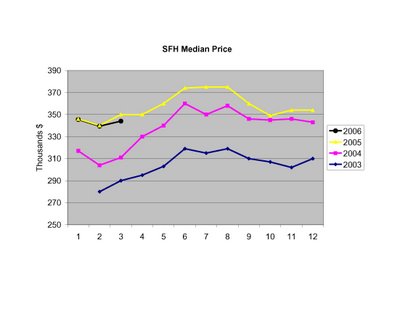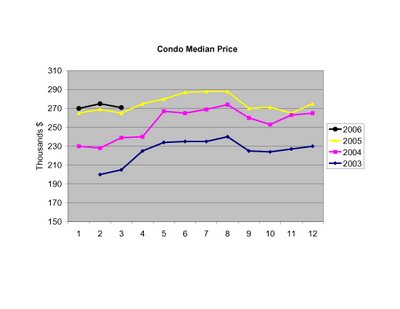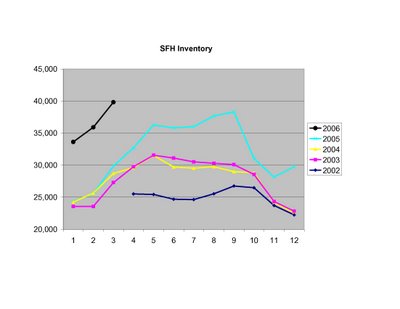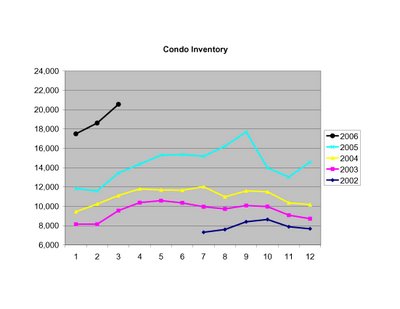March Market Wrap
Results for March were posted today by the Massachusetts Association of Realtors (link). Before going to the results, let me remind you that the March numbers represent sales typically originated in the preceding two months, in this case January and February. Given the mild winter of 2006 (especially January) and the brutal winter of 2005 (blizzard), I was expecting a nice bump in the numbers. Sales were up, but barely (about 2% yoy),, and prices were down for SFHs and up only slightly for condos.
Here are the median sales price data for March:
SFH prices were down 1.7% relative to last year. Cumulative 1st quarter prices are also down. These results clearly demonstrate falling SFH prices on a statewide level.
Condo median prices were up 2.2% relative to last year, and will be up about the same for the 1st quarter. (Up in nominal terms, but down in real terms) Last year in the 1st quarter condo prices were appreciating at ~14%, so the market deceleration is clear.
Inventory numbers continue to surge. According to MAR, inventory levels are the highest in more than a decade - and they show no sign of slowing.

 Notice I had to extend the y-axis range in both plots to accomodate the growing inventory of unsold homes.
Notice I had to extend the y-axis range in both plots to accomodate the growing inventory of unsold homes.
Similar MA sales and price numbers were also released today by the Warren Group, as reported in the Boston Globe (here).